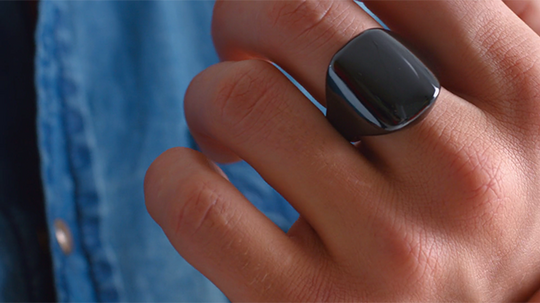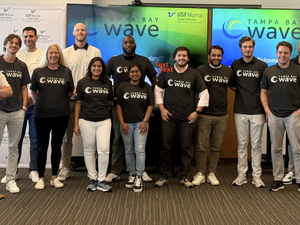
In an age when everyone seems glued to smartphones and hunched over laptops, Gloryvee Cordero thinks technology should be able to empower people to live healthier lives. Through her startup, SciX, Cordero aims to make that happen.
Named a Top 100 Startup of the Year in 2019, SciX is a technology research and development company that creates wearable devices to monitor and predict life-threatening medical conditions. The “Sci” in SciX is short for science. The “X” represents a mathematical variable—medical conditions the company hopes to prevent.
“We look at different medical conditions and the X in SciX becomes the product that we develop,” said Cordero.
The company’s first device was the SciRing, a wearable sensor designed to monitor a person’s blood pressure in order to detect cardiovascular conditions such as heart disease and heart attacks.
“SciRing looks at thresholds in a patient’s [physiological] data to calculate at what point we would need to notify the patient and their doctor that something is wrong,” Cordero said.
Cordero and her business partner Joyonna Gamble-George, a neuroscientist, then wanted to predict strokes. They studied research related to strokes and found that the vibrational frequency of a person’s voice changes four minutes before they have a stroke. The subsequent device, which a patient wears around their neck, is meant to detect aberrations in a person’s voice to give them a head start on seeking medical attention.
“That means it gives someone four minutes before the stroke occurs,” Cordero said.
The market is flooded with wearable fitness and health devices, from the Fitbit to the Apple Watch. Cordero said SciX products differ in that they’re intended to be medical devices, which means they must hold up to rigorous testing and approval by the Food and Drug Administration.
“There are a lot of remote and digital health devices out there now that calculate data and offer metrics, but they cannot predict or prevent you from something like a heart attack,” Cordero said. “If something is wrong with you, they will not warn you or your doctor that something is wrong. Our devices will do that.”
SciX has teams based in Tampa and Virginia, as well as 22 employees out of India. The company has partnered with the National Institute of Health and 28 scientists, including cardiologists and neuroscientists, to research and develop its devices.
SciX is currently seeking approval for its initial devices and actively researching subsequent products. Once approved by the FDA, the medical wearable will likely be offered to customers through insurance providers, Cordero said. Her ultimate goal is for SciX products to integrate into a person’s lifestyle and empower them to think proactively about their health.
“These devices are being created so that they can become a part of a way of life that allows you to feel more empowered and feel more in control of your health,” Cordero said. “Even if you have medical conditions, you can feel like you have some control over what’s happening to you and you can see improvements (then) take actions to address them.”









